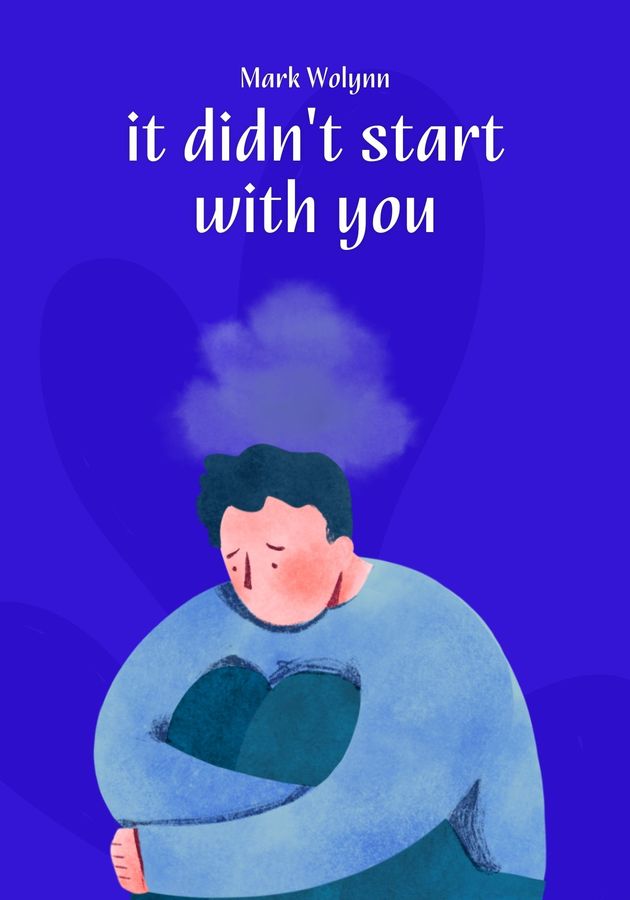Back in 2010, “stay-at-home humorist” Ann Imig was the mother of two beautiful boys: a baby and a preschooler. With her husband constantly travelling for work, the sheer chaos of parenting alone – combined with the unkind “six-month-long long Wisconsin winters” – drove Imig to anguish and desperation. Between the 5 a.m. wake-up pokes from her children and the brief, uncomfortable naps on a LEGO-strewn shag rug, she found some solace in sharing her child-rearing struggles with the outside world – first with her friends over email, and then by “staking out a little Internet carrel of [her] own”.
The blog – named, quite appropriately, Ann’s Rants – became an instant online hit and connected Imig to many like-minded women, all of them with unique parenthood stories begging to be heard by the general public. This inspired Imig to create the Listen to Your Mother network (LTYM), a live-reading series in celebration of Mother’s Day. What began as a one-night show at the Barrymore Theater in Madison, Wisconsin, eventually branched out onto multiple websites and exploded into a national live storytelling series. In 2015, LTYM “leaped to the pages of this book,” an ingenious collection of 56 personal, real-world stories and essays celebrating the miracle of motherhood. Get ready to hear our four favorite ones!
Not a princess
Vikki Reich’s daughter hates pink. Moreover, she doesn’t like flowers, lace, dresses, skirts or anything that sparkles. Rather than dreaming of becoming a princess, she is a wannabe rock star. Suitably, she usually wears dark blue skinny jeans and a teal T. rex shirt; when she leaves home for a sleepover, she never forgets to put on a pair of dark sunglasses over her eyes and a gray stocking cap over her messy, short brown hair. No wonder some of her classmates’ parents have mistaken her for a boy in the past. “Did you make her dress like that?!” one of them once said to Vikki in shock, after seeing her 6-year-old daughter in a vest and black velvet pants, standing in the background of her kindergarten class photo.
Now, none of the above would have mattered a lot to Vikki had she been granted the luxury of being, simply, a mother. However, she is not. She is – and will always be – a lesbian mother. With conservative media and right-wing politicians constantly proclaiming that children need a mother and a father or they will become confused about gender, Vikki can’t help but wonder if life would have been easier had her daughter loved pink and having her hair braided more than her brother’s ties and playing an air guitar.
Growing up closeted and sidelined by society, you’d think Vikki would at least feel proud at her daughter exuding joy and euphoric energy while trotting confidently against the grain. That’s not the case, either. Not because she’s afraid of her daughter having to deal with some of the unpleasant experiences of being different, but because she worries what people might think of her as a parent. Sometimes, she writes, when alone at night, she realizes that she is not “the outspoken advocate for families like mine” or “the feminist who defends her children’s rights to express themselves in any way they choose.” Rather, she is just a stereotypical mother. And she worries.
That all changed one evening after her daughter casually scolded another girl from school for thinking she was “Rapunzel or Cinderella or something.” “But what would you want to be?” asked Vikki, a little worried. “A prince?!” “Mom, I am not a prince,” replied her daughter, rolling her eyes. “Obviously, I am the king.” “My daughter is not a princess and believes that she can be anyone she wants to be,” concludes Reich. “She is happy and loved and kind and compassionate. And that is more than enough.”
The confession jar
When Jenny Forrester was a teenager, she lived with her brother and her divorced mother in a trailer at the very edge of a small, “800-soul town between Durango and Cortez.” The town, she memorably writes, “was one of those trucks-with-gun-racks-hunter-safety-taught-in-school-but-not-birth-control-options-everybody-believe-in-Jesus-in-some-incarnation-or-keep-their-mouths-shut kind of town.” Consequently, it was also a town of a lot of churchgoers and even more secrets.
Jenny had at least two: she was sleeping with a boy, and she hadn’t used birth control pills the last time the two had sex. Her mother learned both things by herself, in a way that made all but impossible for Jenny to invent an excuse: she found a jar on the toilet. “When someone has a jar on the toilet,” she said, confronting Jenny, “It usually means they’re taking a urine sample for a pregnancy test. Do you have something to tell me?” All that Jenny could utter at that moment was, “Mom, I’m going to hell,” while sinking to the floor in tears.
And then, the most beautiful thing happened: her mother embraced her and started crying herself. Not only that, but she also told her that everything was going to be okay, and that – no matter what the other churchgoers might say – there’s really nothing wrong with having kids without getting married. “If you get pregnant,” she said, “don’t get married, because then you’re making two mistakes instead of one.”
One thing led to another and Jenny and her mother started doing something they had never done before: sharing their secrets with each other. “That moment was the beginning of confessions between us,” remembers Jenny. “We confessed in church on a weekly basis and confessed in our prayers, as often as needed. Confession wasn’t new to us, but truth in confession – that was new.” The truth eventually set both women free: in time, Jenny found out that she had been an accident as well, and that her mother was, at heart, a Democrat. Jenny’s mother, on the other hand, finally had at least one person in the world with whom she didn’t need to pretend. So, she rediscovered her true self. And that quest started with a simple jar. No wonder Jenny keeps it beside her bed to this very day.
A much-needed slap in the face
Even though Yoon Park was born in Seoul, South Korea, her family moved to the United States when she was just a toddler. Consequently, unlike her parents and grandparents, she had no problem picking up the new language and adopting the new culture. Soon enough – as often happens in immigrant families – Yoon and her brother assumed two roles that parents usually have: interpreters and navigators through the new world for their mother and father.
One day, when Yoon was in college – “learning about socially and politically marginalized groups, finding her own voice, and exercising her leftist activist leanings” – her mother asked her for some help. She had just received a bank statement or some important financial notification, and she needed her daughter to look it over for her. Yoon translated the document in a few words and with a lot of repressed frustration. It was obvious from her face what was going on inside her. “Sweet mercy,” she thought, “my parents had been in the United States for nearly twenty years, and they still can’t understand a simple document! It’s embarrassing. It’s making all of us look bad.”
Yoon’s mother – being a mother – understood all of that instantly. She didn’t need to hear it being said out loud. She didn’t need to say too much either to make Yoon feel ashamed for thinking such thoughts. “I am not stupid, you know,” she whispered after a brief moment of silence, her broken English sounding more perfect and more truthful than Shakespeare’s iambic pentameters. “She didn’t have to say anything more,” recalls Yoon. “I was left alone to confront… myself. And I was ugly. I was so caught up in trying to gloss over my family’s roots that I adopted the very thing I resented: I had adopted that oppressive, racist view of the world, of my parents. I cringed at kimchi, broken English, and slanted eyes. As those were the things I feared would define me, I had started defining my own mother by them.”
Looking back, Yoon now understands that she needed that kind of “slap in the face” that day, and that getting it was the best thing that has ever happened to her. It opened her eyes to something she had, regretfully, forgotten. Namely, that her mother had been a fighter, working 70 hours a week to allow her children to learn the English she never could. And that through a life of hardship, her mother had learned “not only to survive, but thrive, and nurture her family in a new country.” And that she did all of that without expecting so much as a single “thank-you.” Like many mothers in the world, she actually deserves at least a million.
The children ate my gratitude
Gratitude, they say, is an attitude. However, it’s also a practice – or at least that’s what Ann Imig’s therapist told the compiler of these wonderful stories one day, about four summers ago. Feeling grateful is good and everything, she said, but turning gratitude into an active verb is even better.
So, that’s precisely what Ann started doing. Whenever she remembered something or someone that made her feel grateful, she jotted down the name of that object or person on a sliver of a Post-it note, and then put the piece of paper in a small, silver box originally intended to hold playing cards.
It didn’t take long before the box became “a veritable potpourri of slips of paper extolling [Ann’s] loved ones, happy places, and peaceful moments.” Had one merely leafed through them, says Ann, they would have found many random two-word “mini-prayers of thanks” inside, everything from “working body” to “warm house” to “Mark Ruffalo.”
Ann’s children, Max and Elliott, found something else entirely: a new type of snacks. “Mom? Can I have one?” Elliott asked Ann one day, while pointing to the silver box on the desk. “Max ate one yesterday, and now I want one too.” “Son,” replied Ann, confused, “but that’s paper! We don’t eat paper!” A few moments later, after scolding her sons for acting like little children (they were 7 and 10 years old at the time), Ann saw the sheer beauty and the infinite humor of the memorable event.
“Having already eaten all of my bread,” she writes, her tongue firmly against her cheek, “having already eaten all of my cereal, peanut butter, ice cream, minutes, patience and sleep, my children, my children ate my gratitude as well!” There was only one thing Ann could do after such a realization. So, she did it. She cut a Post-it note in two, wrote “Max” on the first half and “Elliott” on the second, and added the pieces to her box of gratitude. Not that Max and Elliott weren’t already there, from the very start. But, you know, in case they ever ate themselves, accidentally.
Final notes
In the words of reviewer Barbara Bamberger Scott, “Listen to Your Mother” “proves that there is no exclusive definition of ‘mother’ – not in the world, not even in our own country and culture.” And indeed, to stay with Scott a bit more, this anthology is “nearly guaranteed to shake up your preconceptions of motherhood.”
In the 56 stories compiled by Imig – almost all of them moving and memorable – you’ll find all kinds of mothers, from failed to funny, from caring to courageous. Above all, however, you’ll find a new appreciation for your own mother – and a better understanding of all the ups and downs of motherhood.
12min tip
Read the title of Ann Imig’s anthology. Now, read it again. Now, if there are no objective or emotional obstacles stopping you from doing that, go call your mother. Say “thank you.” She’ll know why. You already do.





























